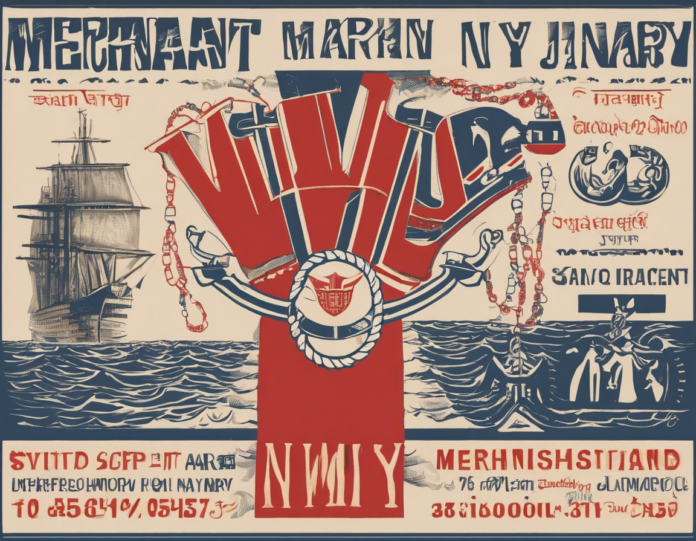Introduction
Joining the merchant navy can be a thrilling career choice for those who are passionate about the sea, adventure, and traveling the world. Besides the excitement and unique lifestyle that this profession offers, one of the key considerations for many aspiring seafarers is the salary potential. Understanding the earning expectations in the merchant navy can help individuals make informed decisions about pursuing this career path. In this comprehensive guide, we will delve into the salaries in the merchant navy, factors that influence pay scales, and what aspiring seafarers can expect in terms of compensation.
Merchant Navy Salary Structure
The salary structure in the merchant navy is influenced by various factors, including rank, experience, type of vessel, and the shipping company. Merchant navy personnel are typically categorized into different ranks, each with its own responsibilities and pay scale. The following are some of the key ranks in the merchant navy:
1. Captain (Master): The captain is the highest-ranking officer on board a ship and is responsible for its overall operation and safety. Captains in the merchant navy command the highest salaries, with their earnings ranging from $8,000 to $15,000 per month or more, depending on experience and the type of vessel.
2. Chief Officer (First Mate): The chief officer is second in command to the captain and assists in managing the ship’s operations. Chief officers typically earn between $5,000 to $8,000 per month.
3. Second Officer: The second officer is responsible for navigation and safety procedures on board. Second officers can expect to earn between $3,500 to $6,000 per month.
4. Third Officer: The third officer assists the second officer in navigation duties and can earn between $2,500 to $4,500 per month.
5. Chief Engineer: The chief engineer is in charge of the ship’s engineering crew and systems. Chief engineers are among the highest-paid engineering positions in the merchant navy, with salaries ranging from $6,000 to $10,000 per month.
Factors Influencing Salary
Several factors influence salary levels in the merchant navy:
1. Experience: Like in any other profession, experience plays a crucial role in determining salary levels in the merchant navy. Seafarers with more years of experience can command higher salaries due to their valuable skills and knowledge.
2. Type of Vessel: The type and size of the vessel also impact salary levels. Larger, more complex vessels may offer higher salaries compared to smaller ships.
3. Shipping Company: The shipping company a seafarer works for can also affect salary levels. Some companies may offer more competitive compensation packages or additional benefits to attract and retain skilled seafarers.
Merchant Navy Salary Packages
In addition to basic salaries, seafarers in the merchant navy may also receive various benefits and allowances as part of their compensation package. These may include:
1. Leave Allowance: Seafarers are entitled to paid leave periods based on their contract. During these periods, they continue to receive their basic salary.
2. Health Insurance: Many shipping companies provide comprehensive health insurance coverage for seafarers to ensure they have access to medical care while at sea or on land.
3. Retirement Benefits: Some companies offer retirement benefits or pension schemes to seafarers to help them plan for their financial future after retiring from active service.
4. Bonuses and Incentives: Seafarers may also be eligible for bonuses and incentives based on performance, experience, or successful completion of voyages.
Frequently Asked Questions (FAQs)
Q1. What is the average salary for entry-level positions in the merchant navy?
A1. Entry-level positions in the merchant navy, such as deck cadets or engine cadets, can expect to earn between $1,000 to $2,500 per month, depending on the shipping company and vessel type.
Q2. Are there opportunities for salary growth in the merchant navy?
A2. Yes, with experience and advancement in ranks, seafarers can experience salary growth in the merchant navy. Continuous learning, training, and upgrading certifications can also lead to higher earnings.
Q3. Do seafarers receive additional pay for working overtime?
A3. Seafarers may receive additional compensation for working overtime or on holidays, as per the provisions of their employment contract and regulations.
Q4. How do tax regulations impact the salaries of seafarers in the merchant navy?
A4. Seafarers in the merchant navy are often considered as non-resident or transient workers, and their salaries may be subject to specific tax regulations or exemptions based on the laws of their home country and the flag state of the vessel.
Q5. What are the career prospects for seafarers in the merchant navy?
A5. The merchant navy offers diverse career prospects for seafarers, with opportunities to advance to higher ranks, specialize in specific areas such as navigation, engineering, or pursue shore-based roles in the maritime industry.
Conclusion
Understanding the salary structure, factors influencing compensation, and additional benefits available in the merchant navy is crucial for individuals considering a career at sea. While salaries in the merchant navy can vary based on several factors, it is important for aspiring seafarers to conduct thorough research, seek advice from experienced professionals, and choose reputable shipping companies that offer competitive compensation packages. With the right qualifications, skills, and dedication, a career in the merchant navy can be not only financially rewarding but also fulfilling in terms of personal growth and exploration of the seas.


